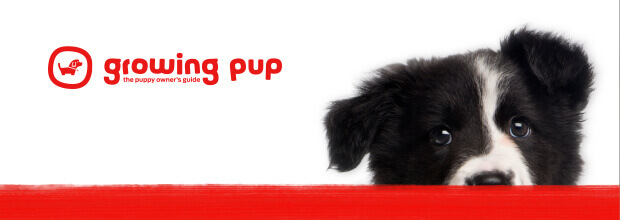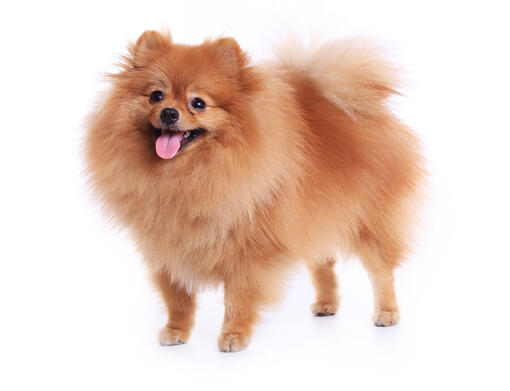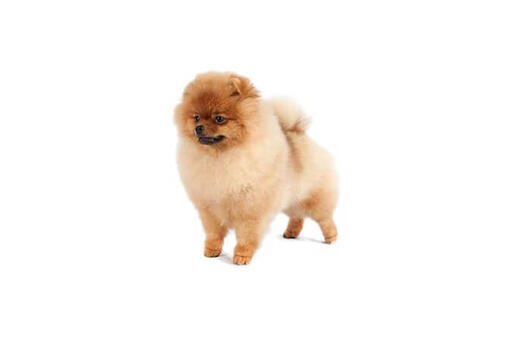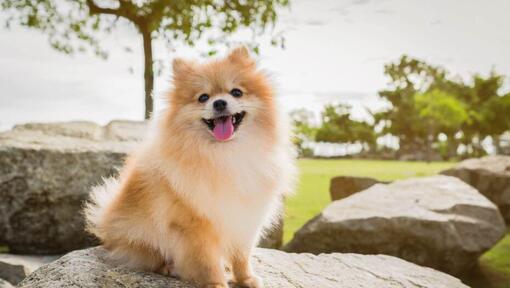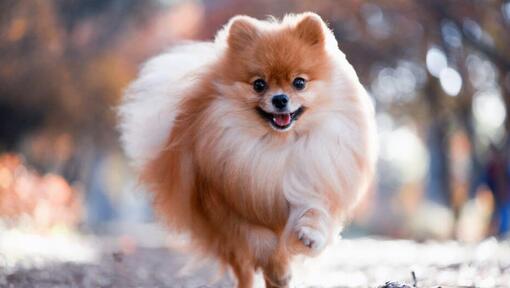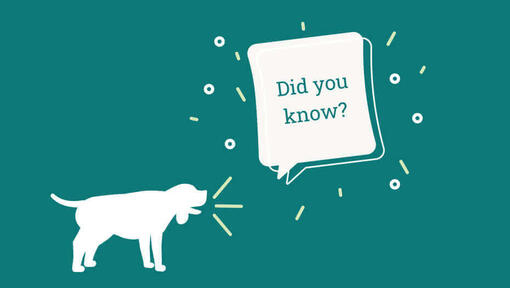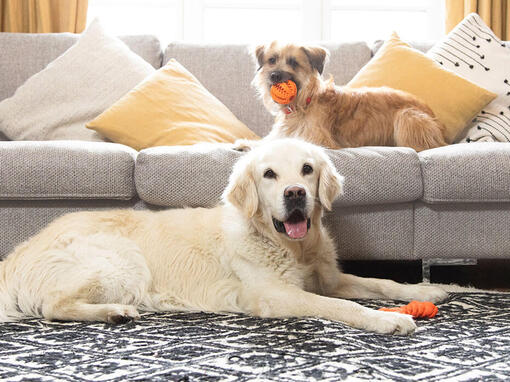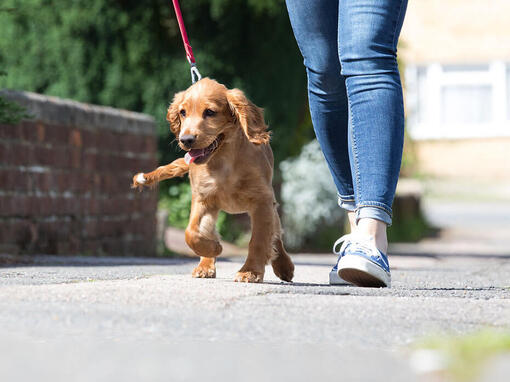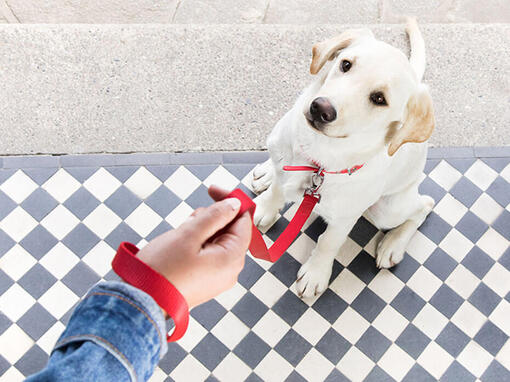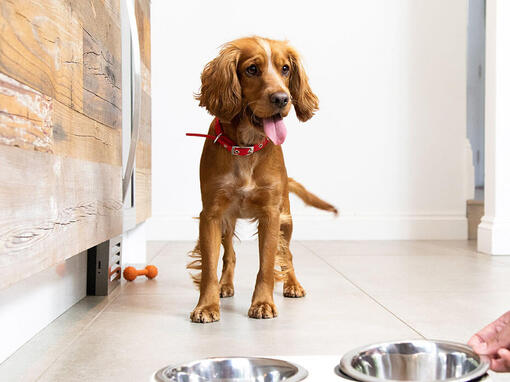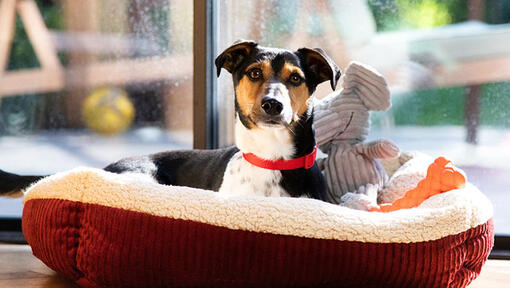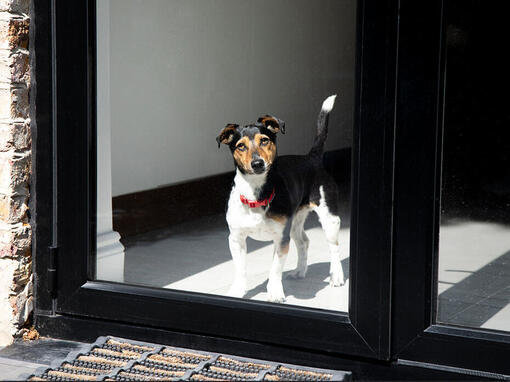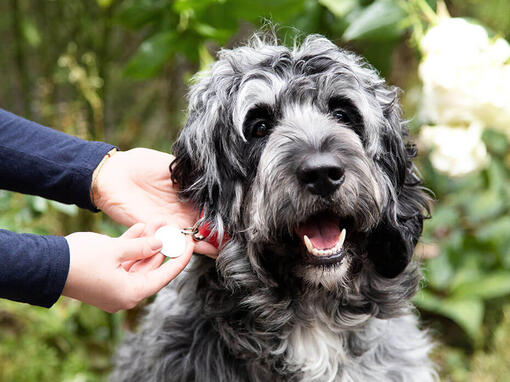A cocky, animated dog of Nordic descent, the Pomeranian originally weighed nearly 13 kilograms and served as a sheep herder. The breed was reduced in size in the historical region of Pomerania, which today is Germany and Poland. An extrovert with great intelligence and a vivacious spirit, the Pomeranian can be an excellent family dog. The breed’s protective demeanor makes him a good watchdog as well. The Pomeranian does not require much exercise, but his thick coat needs regular brushing.
DID YOU KNOW? The popularity of the Pomeranian dramatically increased when Queen Victoria brought one back to England from Italy in 1888. A Pomeranian named “Turi” lay next to the Queen at her death.
ALSO KNOWN AS: Deutscher Spitz, Zwergspitz, Spitz nain, Spitz enano, Pom, Zwers


